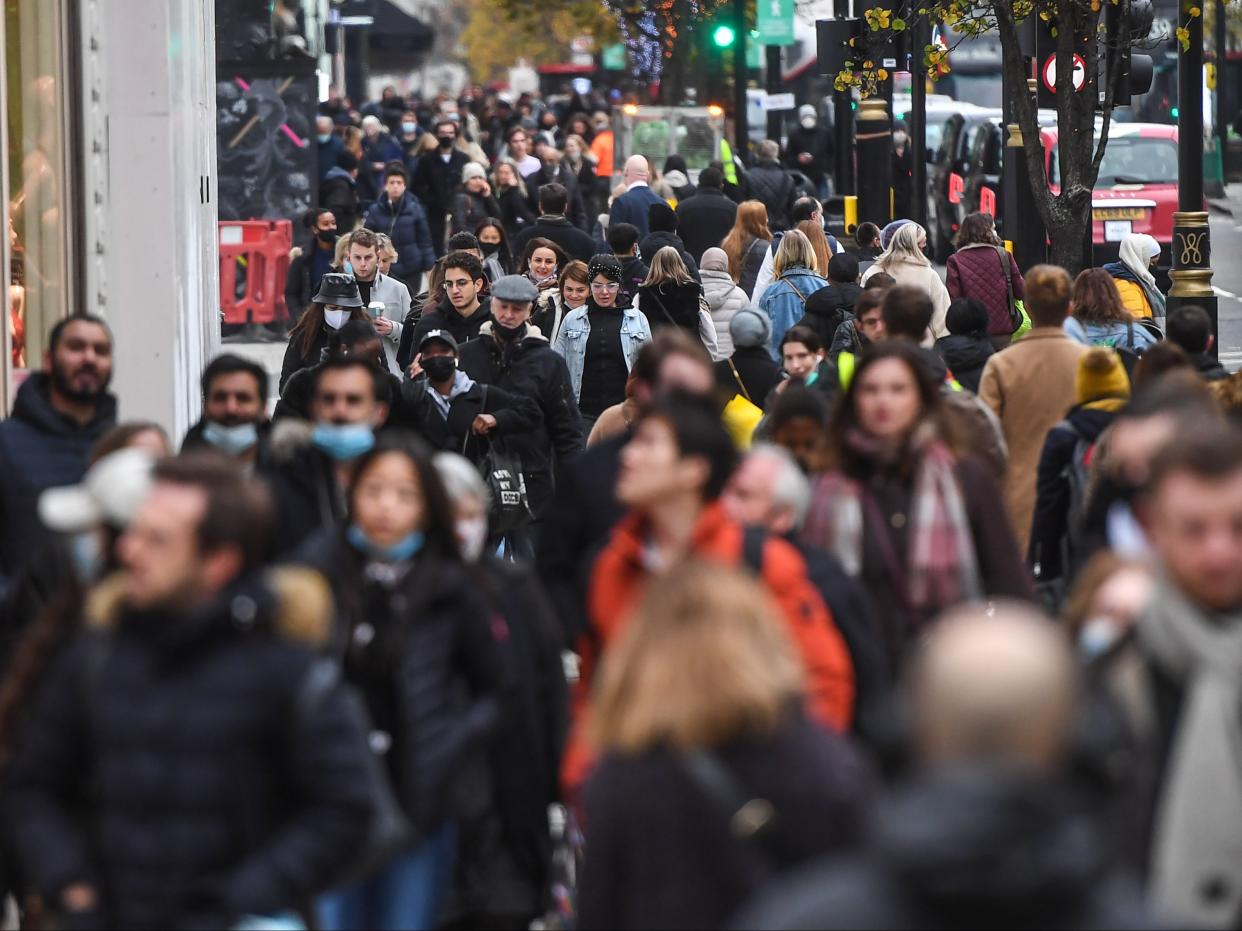England’s wellbeing in ‘freefall’ during Covid pandemic, report warns

Crowds of shoppers on Oxford Street after lockdown
(Getty)England is undergoing a sharp decline in national wellbeing, according to new report into happiness levels, mental health and life satisfaction.
The wellbeing of people in England was falling across multiple areas before the coronavirus pandemic and is likely to now be in “free-fall”, according to the Carnegie UK Trust.
Rising unemployment and debt, as well as dwindling trust in the government, are having an impact on the quality of life, the report stated.
The Carnegie UK Trust has launched an overall measure of wellbeing in England called Gross Domestic Wellbeing (GDWe), similar to how Gross Domestic Product (GDP) measures the economy.
The index tracks 10 different areas – including relationships, education and the environment – using data from the Office for National Statistics and arrives at a single figure out of 10 to assess whether life is improving.
The score awarded for 2018-19 was 6.89, a decline from the rating of just under 7 given for the three previous years. Ratings for life satisfaction, happiness, anxiety and loneliness have deteriorated.
Jennifer Wallace, head of policy at the Carnegie UK Trust, said: “GDP fails to track some of the most important aspects of our lives, such as employment, health, life expectancy, mental wellbeing and crime rates.
“GDWe is like a basket of goods taken from our daily lives,” she added. “It is a robust, realistic way to ask whether life is improving.”
NEW REPORT | 1⃣0⃣ years on since the @JosephEStiglitz Commission highlighted the inadequacy of measuring economic production, we have developed Gross Domestic Wellbeing (GDWe) as an alternative measure of social progress. #GDWe #BeyondGDP
👉https://t.co/gs97sTeaU8 pic.twitter.com/fLlOnf7Z8I— Carnegie UK Trust (@CarnegieUKTrust) December 4, 2020
She added: “GDWe was already in decline before lockdown, so it is likely to be in freefall now. It is vital we do not view the impact of Covid-19 exclusively through the lens of the economy. If the government is to live up to its promise to build back better, it must look at the inequalities that exist throughout society.”
Lord John Bird, founder of The Big Issue, said the measure offers “a new way of thinking” about how to address inequality. “Covid-19 has shown the extreme inequalities that persist for many people living in England,” he said. “The wellbeing of current and future generations is at risk.”
In August the Office for National Statistics found that almost one in five adults, 19.2 per cent, were likely to be experiencing some form of depression during the pandemic. The figure had almost doubled from 9.7 per cent experiencing depression before the pandemic.
Read More
First Covid vaccines arrive in UK as Fauci apologises – follow live

